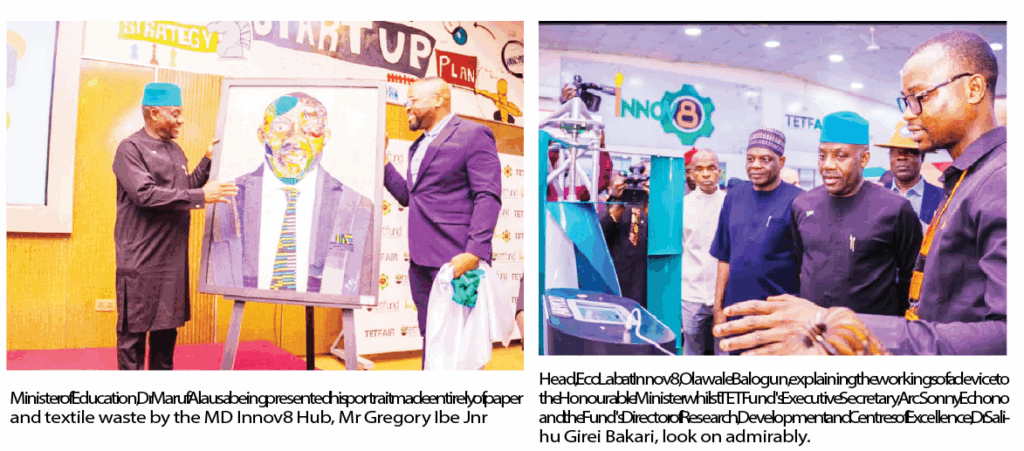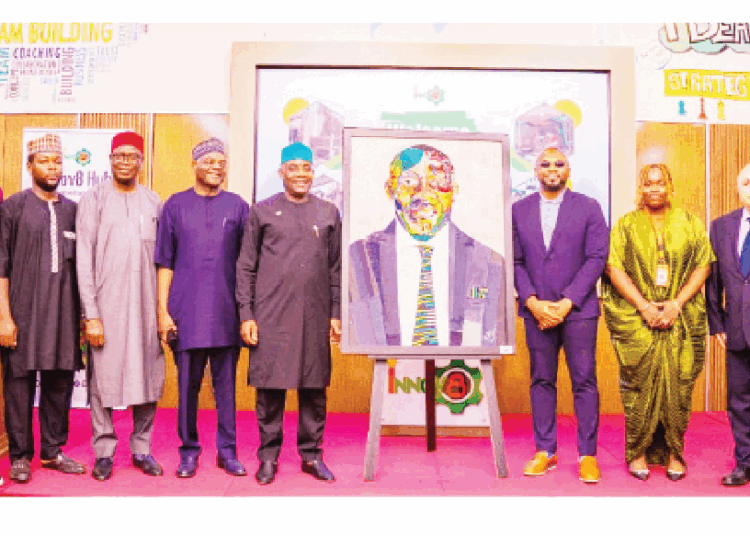A renewed path toward economic transformation was illuminated recently when Dr. Maruf ‘Tunji Alausa, Nigeria’s tireless Minister of Education, paid a working visit to Innov8 Hub—an Abuja-based innovation nonprofit with a singular focus: to reshape Nigeria’s future through technology, research, and enterprise.
Described by observers as both timely and strategic, the visit underscored the urgency of advancing Technical and Vocational Education and Training (TVET) and reinforcing Nigeria’s commitment to Science, Technology, Engineering, Mathematics, and Medical Sciences (STEMMS)—critical engines for any modern, knowledge-driven economy.
With Nigeria projected to become the world’s third most populous country by 2030—surpassing the United States with over 265 million people—the stakes are higher than ever. The need for sustained investments in education, innovation, and human capital cannot be overstated.
The Tinubu administration has repeatedly declared its intention to fast-track Nigeria’s repositioning, particularly in light of the country’s escalating youth unemployment, disruptive technological changes, and the legacy of underperforming education systems.
Globally, nations like the United States, China, South Korea, Israel, Japan, and Germany continue to lead in Research and Development (R&D) investments. Closer to home, African counterparts—South Africa, Kenya, Egypt, and Morocco—are making visible progress in both R&D and STEM education, laying strong foundations for inclusive growth. Nigeria must not lag behind.
It is this national imperative that inspired the establishment of Innov8 in 2019—“with a mandate to cultivate a culture of innovation, entrepreneurship, creativity, and research in Nigerians.”

Dr. Alausa’s visit aligned seamlessly with that mission. A well-known proponent of TVET and STEMMS, the Minister took his time touring the facility, asking incisive questions, engaging young innovators, and expressing admiration for the ingenuity on display.
One standout product that caught his attention was the hybrid gas- and solar-powered “Jolly” gari fryer—an energy-efficient machine he deemed market-ready and capable of scaling for commercial production. Another innovation that impressed him was a modular poultry pen, which he described as a potential quick-win for youth empowerment. According to the Minister, a unit holding 250 birds could generate monthly profits of up to ₦300,000, net of feed costs.
He encouraged Innov8 to deepen engagements with the Bank of Industry and other financing institutions to support such scalable, homegrown solutions.
Dr. Alausa was accompanied by a distinguished delegation, including Arc. Sonny S.T. Echono, Executive Secretary of TETFund, Prof. Paulinus Chijioke Okwelle, Executive Secretary, National Commission for Colleges of Education (NCCE) and Mr Abdulhamid Usman representing The National Board of Technical Education (NBTE).
The team was warmly received by the top management of Innov8 Hub led by Mr. Gregory Ibe Jr. (Managing Director), alongside Chief Meir Dagan (General Manager), H.E. Edward Singhatey (Director), and Dr. Deji Ige (Deputy GM).
As a symbolic gesture of creativity and environmental consciousness, Dr. Alausa was presented with a portrait made entirely of paper and textile waste—a striking example of innovation with sustainability at its core.
Innov8 has continued to shape Nigeria’s innovation landscape through programmes such as TETFAIR (TETFund Alliance for Innovative Research), R4i (Research for Impact), i-Fair (supported by the Israeli Embassy), ASIP (Academic Solutions Incubation Program), Transformative Innovation Workshop (TIW).
Through these initiatives, the Hub has nurtured over 2,000 researchers, entrepreneurs, and creators, and facilitated the development of more than 300 prototypes—many of which are now gaining market traction.
One of the programme beneficiaries, Dr. Nandang Kargwak Ishaku of Plateau State Polytechnic and a member of R4i’s Cohort 30, attested to the transformative power of Innov8.
“The programme has turned us from mere academics into change-makers, innovators, and pioneers of a new Nigeria,” he said.
“More importantly, Innov8’s work culture has renewed our belief in a country where solutions emerge from the ingenuity of its people, where research fuels industry, and innovation drives sustainable development.”
As Nigeria stands at a defining crossroads, the time has come for the government to move from intent to full-scale commitment—through strategic collaborations by key Ministries, Departments, and Agencies (MDAs) with Innov8 Hub.
Sustained partnerships, clear policies, and targeted funding are essential to embedding innovation in the DNA of the Nigerian economy.
With champions like Dr. Alausa leading the charge, the transformation train must now gather speed—bringing to life President Bola Tinubu’s promises of “Renewed Hope” for millions of Nigerians seeking a more secure, inclusive, and innovative future.
– Eniola Olakunri is a public sector analyst and CEO of Write Affairs. He writes from Abuja
We’ve got the edge. Get real-time reports, breaking scoops, and exclusive angles delivered straight to your phone. Don’t settle for stale news. Join LEADERSHIP NEWS on WhatsApp for 24/7 updates →
Join Our WhatsApp Channel










